Knowledge Between Covers
A small selection of new publications.
‘Sounds utopian – and that's what it's meant to be’
Everyone should be allowed to travel anywhere to work and live wherever they please – unless exceptional situations make it necessary to restrict border crossings for a certain period of time. This, in a nutshell, is the demand voiced by political scientist Professor Volker Heins, which he lays out and substantiates on 224 pages.
His thesis is that it is not the opening but the permanent closing of borders that is illusory – and often life-threatening for those people who are directly affected by it. Moreover, it goes hand in hand with a loss of freedom in the countries that seal themselves off. In modern states, the basic human need to cross borders can only be suppressed with excessive force.
As an expert on migration, exile and democracy, the author takes issue with the ‘fetish of the nation,’ but not with the existence and independence of states: ‘For example, states may offer the prospect of visa concessions, but they may also refuse to grant visas if one state behaves in a hostile manner towards another or towards parts of its population,’ explains Heins.
His work, which was nominated for the NDR Non-Fiction Book Prize 2021, expresses the conviction that global freedom of movement is the basis for a stable and just world order. He counters criticism from the right by saying that it presents racism as a supposedly normal, predictable reaction to migration and thus legitimises it.
Why is this utopia necessary? ‘Because the world as it is at present is not acceptable.’
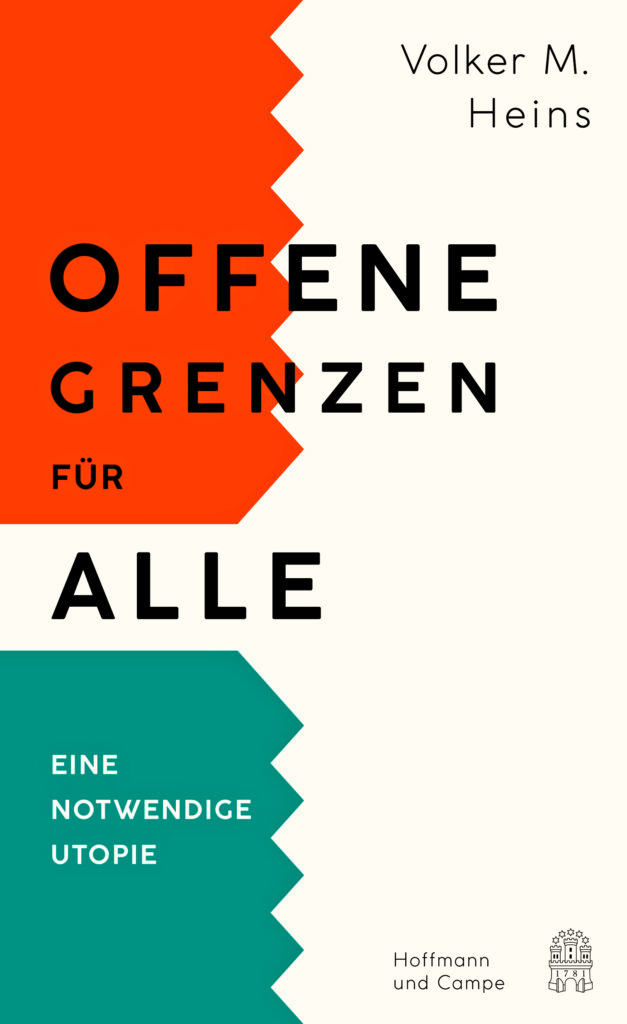
Volker Heins:
Offene Grenzen für alle: Eine notwendige Utopie
ISBN: 978-3-455-01067-1
An explorer free of prejudice
He was one of the most important European explorers of Africa, and yet he is not a widely known figure: Heinrich Barth (1821-65). His great expedition between 1849 and 1855 lasted five and a half years and took him through West and Central Africa, from Lake Chad to Timbuktu. In his biography, historian Professor Christoph Marx describes the life of a great explorer and researcher of the 19th century as follows: ‘As a traveller, Barth demonstrated a degree of interest in African cultures that was remarkable for a European. His view was unclouded by imperialist and racist perceptions that so often characterised other explorers and conquerors of the emerging colonial age.’
Barth’s exceptional gift for languages enabled him to communicate directly with African scholars. To this day, his travel report remains one of the most important sources on the economic and social history of West Africa. In addition, Barth undertook numerous expeditions to the Mediterranean region, as its geographic exploration was his other major concern. His travels in that region led him from Morocco in the West to present-day Turkey in the East.
The author paints a comprehensive picture of a man who was a pioneering geographer, historian and ethnologist and who continues to be a shining example of science without prejudice. It was only due to his premature death that Barth never received the recognition he deserved.
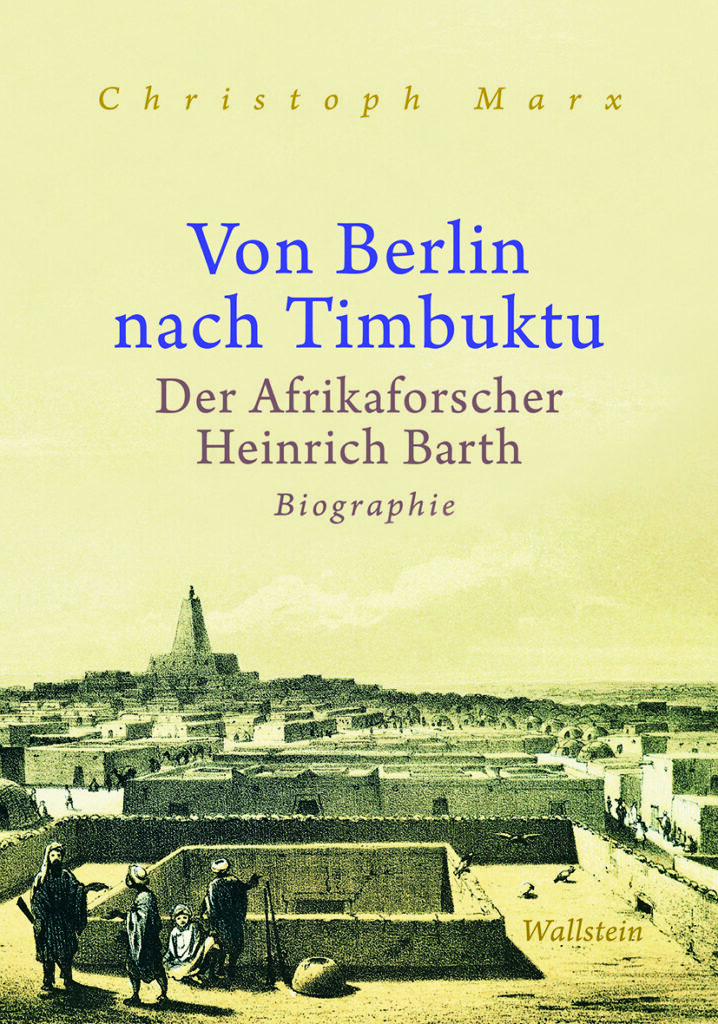
Christoph Marx:
Von Berlin nach Timbuktu.
Der Afrikaforscher Heinrich Barth
ISBN 978-3-8353-5009-0
Don't believe everything you think
‘When teaching, it makes sense to take learning styles into account.’ There are some teachers who don’t doubt this maxim. However, these beliefs haven’t been scientifically proven; on the contrary: ‘They have already been disproved, but they do persist,’ says Professor Gisela Steins. Reason enough for the psychologist and four of her colleagues to publish a book on the subject.
On 234 pages, the educational researchers have compiled perceived truths that are upheld and widely disseminated – including in academia – even though they are demonstrably false. Eleven articles, based on current psychological research, examine myths, fallacies, misconceptions and misguided ideas in schools and classrooms. How do they emerge and how can they be changed?
‘Misconceptions are problematic, because they can lead to social stigmas, unjustified criticism as well as discrimination, to name just a few. But when they are shared and spread by experts – this is when things get problematic,’ says Steins. If, for example, a lot of people are under the misconception that gifted children usually also exhibit social behaviour disorders, this is likely to be less of a problem than if this belief is prevalent among teachers. ‘Raising awareness is important, but it’s not enough on its own. Rather, we need to call the myths out for what they are and stringently refute them.’ This is the method laid down in this book, which aims primarily at educators and teachers.
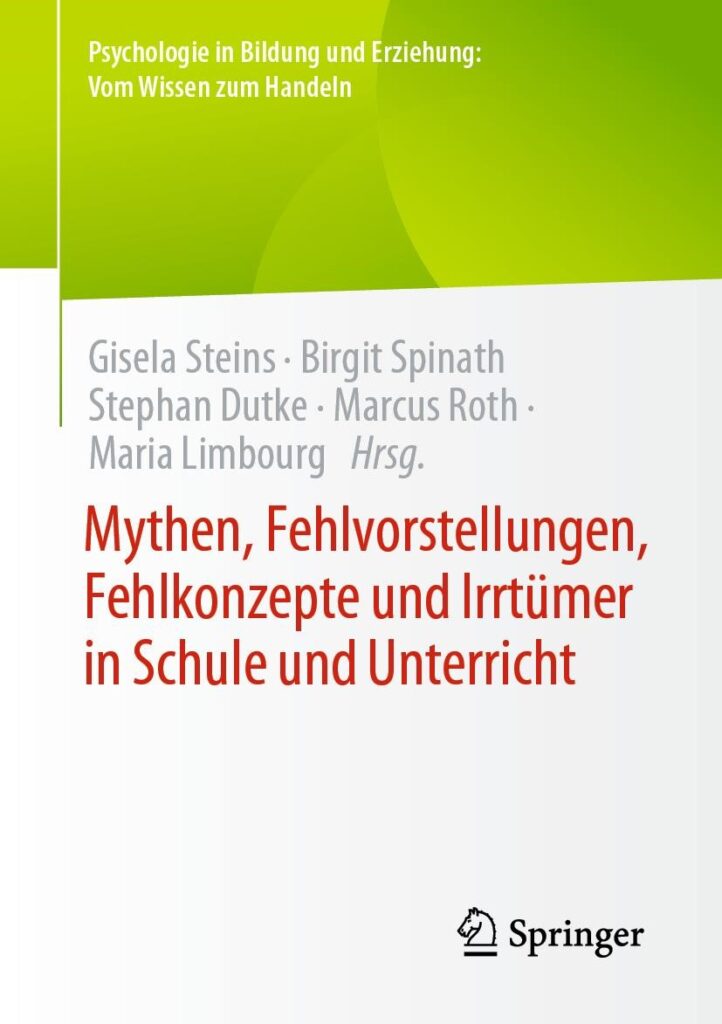
Gisela Steins, Birgit Spinath, Stephan Dutke, Marcus Roth, Maria Limbourg (Hrsg.): Mythen, Fehlvorstellungen, Fehlkonzepte und Irrtümer in Schule und Unterricht
ISBN: 978-3-658-36259-1
Exquisite solace
First of all: No, this it is not a self-help book, even if the title ‘Trost: Vier Übungen’ (Solace: Four Exercises) might suggest so. Rather, cultural scientist Dr. Hanna Engelmeier addresses the phenomenon of ‘solace’ in contemporary literature in four chapters, with references to how Rainer Maria Rilke, Cheryl Strayed, Theodor Adorno and David Foster Wallace approached the issue and how they’ve influenced her, the author. On 198 pages, Engelmeier focuses on a question that has received little attention in research to date: in what way do reading and literature provide solace? By comparing different writers and genres, she shows that there isn’t just one answer, but that there are many. In addition to the classics, she also discusses Joan of Arc comics, prayers and the audio play of Walt Disney’s ‘Aristocats’.
Engelmeier merges genres, sometimes in a reflective, sometimes in a humorous way – literary and pop-cultural sources are juxtaposed with scientific theories and autobiographical narration. As a result, the book also represents an attempt to expand or transcend conventions of academic writing. For this, Engelmeier was awarded the Clemens Brentano Prize 2022, among others.
For her, solace is a self-technique that can shrink grief and make insoluble problems bearable, at least for the time being. ‘You give solace to yourself and also give it to others – including with the help of linguistic aesthetics. That’s what the book is all about.’
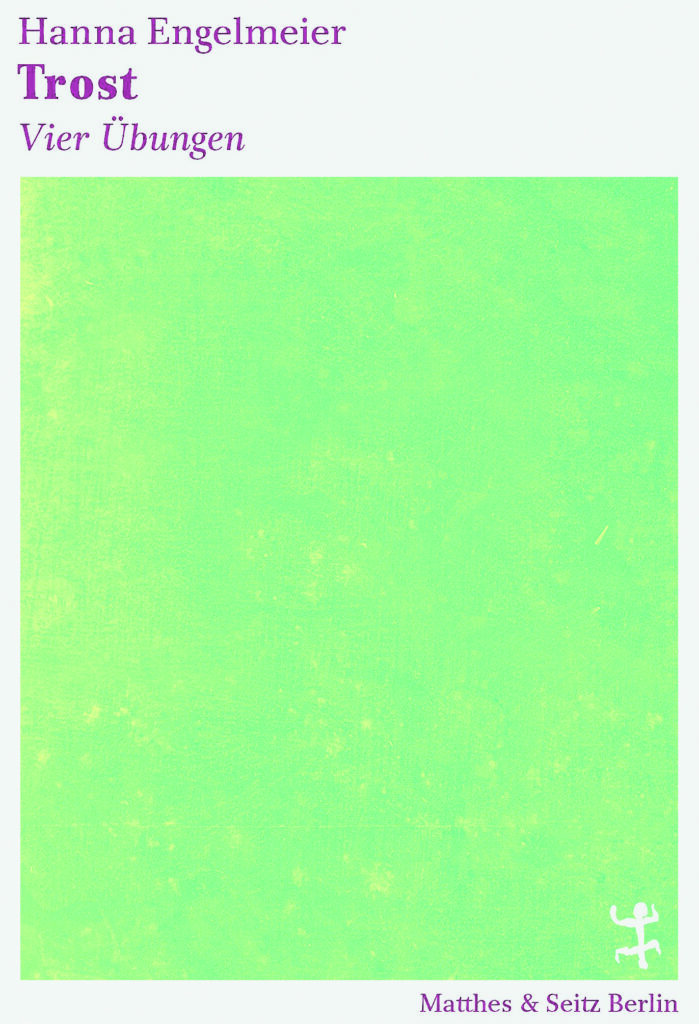
Hanna Engelmeier: Trost. Vier Übungen
ISBN: 978-3-7518-0056-3
The opinion leaders
Attac, LobbyControl, Foodwatch, Campact, German Environmental Foundation: non-governmental organisations (NGOs) wield influence. Too much influence, as political parties and the business community sometimes criticise. And although these organisations play an important role in an open society, they have been neglected in research so far. Now, we can read on 145 pages how NGOs operate and how they decide to interfere with the political process. Political scientist Dr. Maximilian Schiffers has compared the NGOs mentioned above. ‘All five have in common that they were involved in the European citizens’ initiative against the free trade agreements TTIP and CETA. Apart from that, they have completely different organisational structures and different strategic approaches.’
Schiffers sorts by member, expertise, campaign and platform NGO. He analyses the five NGOs based on the categories of support, influence and reputation. And he classifies how they operate as lobbyists. Some establish close, direct ties with political decision-makers, for example in parliament or in ministries. Others rely on the media and the general public to articulate concerns indirectly and to mobilise support. Sometimes, both strategies are combined.
What all these NGOs have in common, according to Schiffers, is that ‘to achieve their goals, they play on the three stages: grassroots, politics, media.’
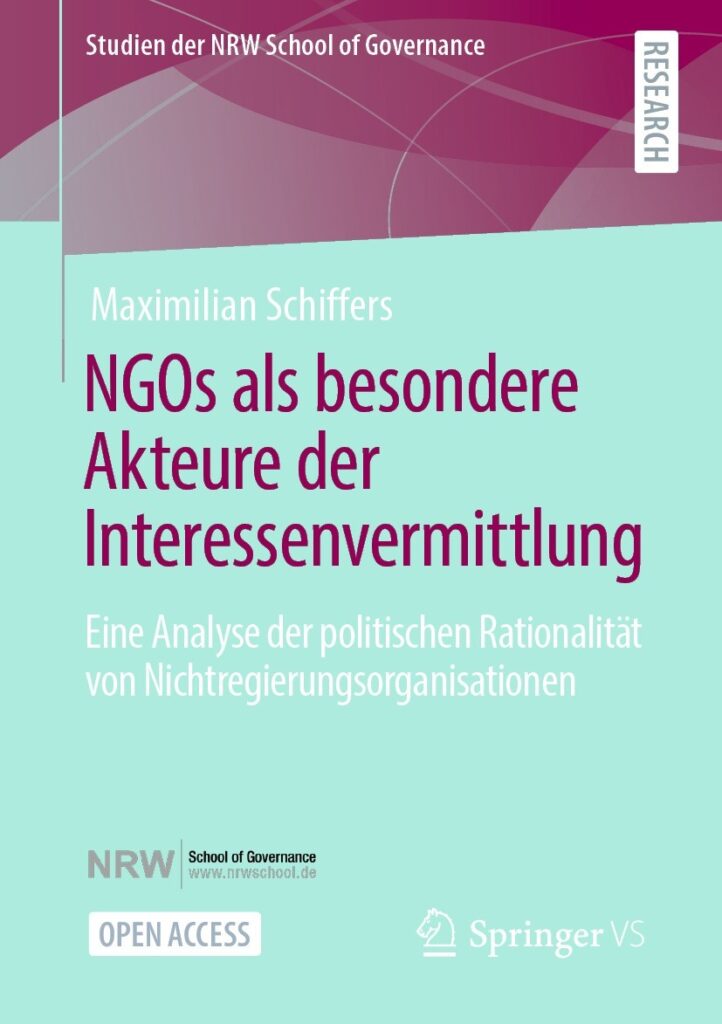
Maximilian Schiffers:
NGOs als besondere Akteure der Interessenvermittlung
eBook ISBN: 978-3-658-34851-9
Free Download



